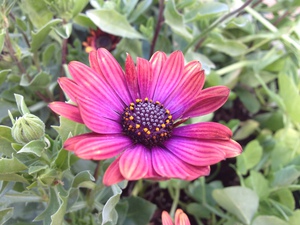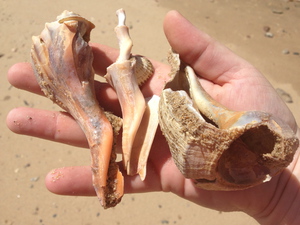News
Dancing With The Mystery
Wednesday, May 7, 2014

Dear Friends…
With the advent of a beautiful spring, I find myself continuing to drink deeply of the ideas of Joseph Campbell, and pondering the parallel relationships in various cultures, religions, and mythologies surrounding growth and evolution.
Campbell’s writing has touched something deep within me. He is understood to be an expert in comparative religion. But he is very mystical himself. He is not just interested in academic or logical understanding of a thing; he is interested in a heart-felt, passionate, mystical emersion in an idea.
Campbell refers to the mind as a secondary organ. He says trouble always begins when we allow the mind to rule the body rather than letting it be one aspect of a much more complicated system. The heart, he says, is the real master. In an interview, Bill Moyers questions Joseph and asks, “But what is the heart?” and Campbell says, “It is the essence of our being. It is the lust for life itself!”
But we do have a mind. And even if Joseph is correct that it is a secondary organ, we still must contend with it. We must find a way to surrender ourselves to the mystery of life around us, because trying to be the master of Life is a sure fire way to immerse ourselves in strife. For some, the surrender to mystery happens through their spiritual practices. For others, it happens through family and community. For many people music, art, theater, dance, and other creative expressions are the place where they connect with the essence of life. But what I come to feel as I absorb the power of the new life all around me is that we are commissioned by our very existence, to seek to be in relationship with the mystery of our existence. Perhaps paradoxical as a line of logic, but it is an idea that makes sense to my heart.
The mystery is calling. And we all connect with it in our own way. Some tend the garden. Some raise children. Some teach, some create; some take the bounty of the earth and learn to cook, or fashion useful objects. Some devote themselves to thinking and understanding, and some to the path of the shaman, healer, seeker, or muse. For thousands of years, our ancestors have all stared into the void of that mystery and sought to make their peace with the unknowable.

And in the presence of such beauty, such fascinating wonder and detail, such extravagantly rich natural splendor, in the blossoming of a Lilac or the stars in the night sky, in the liminal spaces between layers of awareness and understanding and perception, our senses awaken and integrate. When we surrender our need to “know” and integrate it into a deeper need to experience, I think this is when we are in touch with the heart, with life itself.
The famed Lebanese poet, Kahlil Gibran wrote so eloquently:
Your children are not your children
They are the sons and daughters of Life’s, longing for itself
They come through you but not from you
And though they are with you, yet they belong not to you
What would it mean to apply this idea not just to out literal children, but to our work? What about our creations as artists, or our thoughts, deeds, projects, hopes, goals, and deepest desires? What would it mean to embrace the idea that everything we yearn to manifest in ourselves, our lives, in the world around us, belongs not to us, but to Life itself? How does it free us to consider that we are ourselves, manifestations of Life’s longing for itself?
As I breathe deeply of this spring day, I see flowers in bloom, and new growth all around. I feel the vibrant force of life itself, longing, yearning for its purpose. Pure science can be seen to suggest that the purpose of life is to propagate more life; that the purpose of the beauty of a flower or a person, is to foster the continuance of the species. But as I look without and within, I think that the purpose of existence is to experience existence, to be alive, to grow, to evolve, to feel joy and sorrow, to laugh and love, to soak up the sun and the rain. And then on some level, we open ourselves to being transformed and humbled by our own communion with the mystery. And through that transformation, however small at times, we become more aware of the suffering we witness and experience in the world, in our communities, in our families, friends, and in our closest loved ones. And we are thus called, as we are able, to try and reduce that suffering in some way. That is our commission. Not solely to experience, but to be transformed by experience.
On this fine day in May, I consider what it means to be in right relation with the mystery.
Happy May!
- Joe
With the advent of a beautiful spring, I find myself continuing to drink deeply of the ideas of Joseph Campbell, and pondering the parallel relationships in various cultures, religions, and mythologies surrounding growth and evolution.
Campbell’s writing has touched something deep within me. He is understood to be an expert in comparative religion. But he is very mystical himself. He is not just interested in academic or logical understanding of a thing; he is interested in a heart-felt, passionate, mystical emersion in an idea.
Campbell refers to the mind as a secondary organ. He says trouble always begins when we allow the mind to rule the body rather than letting it be one aspect of a much more complicated system. The heart, he says, is the real master. In an interview, Bill Moyers questions Joseph and asks, “But what is the heart?” and Campbell says, “It is the essence of our being. It is the lust for life itself!”
But we do have a mind. And even if Joseph is correct that it is a secondary organ, we still must contend with it. We must find a way to surrender ourselves to the mystery of life around us, because trying to be the master of Life is a sure fire way to immerse ourselves in strife. For some, the surrender to mystery happens through their spiritual practices. For others, it happens through family and community. For many people music, art, theater, dance, and other creative expressions are the place where they connect with the essence of life. But what I come to feel as I absorb the power of the new life all around me is that we are commissioned by our very existence, to seek to be in relationship with the mystery of our existence. Perhaps paradoxical as a line of logic, but it is an idea that makes sense to my heart.
The mystery is calling. And we all connect with it in our own way. Some tend the garden. Some raise children. Some teach, some create; some take the bounty of the earth and learn to cook, or fashion useful objects. Some devote themselves to thinking and understanding, and some to the path of the shaman, healer, seeker, or muse. For thousands of years, our ancestors have all stared into the void of that mystery and sought to make their peace with the unknowable.

And in the presence of such beauty, such fascinating wonder and detail, such extravagantly rich natural splendor, in the blossoming of a Lilac or the stars in the night sky, in the liminal spaces between layers of awareness and understanding and perception, our senses awaken and integrate. When we surrender our need to “know” and integrate it into a deeper need to experience, I think this is when we are in touch with the heart, with life itself.
The famed Lebanese poet, Kahlil Gibran wrote so eloquently:
Your children are not your children
They are the sons and daughters of Life’s, longing for itself
They come through you but not from you
And though they are with you, yet they belong not to you
What would it mean to apply this idea not just to out literal children, but to our work? What about our creations as artists, or our thoughts, deeds, projects, hopes, goals, and deepest desires? What would it mean to embrace the idea that everything we yearn to manifest in ourselves, our lives, in the world around us, belongs not to us, but to Life itself? How does it free us to consider that we are ourselves, manifestations of Life’s longing for itself?
As I breathe deeply of this spring day, I see flowers in bloom, and new growth all around. I feel the vibrant force of life itself, longing, yearning for its purpose. Pure science can be seen to suggest that the purpose of life is to propagate more life; that the purpose of the beauty of a flower or a person, is to foster the continuance of the species. But as I look without and within, I think that the purpose of existence is to experience existence, to be alive, to grow, to evolve, to feel joy and sorrow, to laugh and love, to soak up the sun and the rain. And then on some level, we open ourselves to being transformed and humbled by our own communion with the mystery. And through that transformation, however small at times, we become more aware of the suffering we witness and experience in the world, in our communities, in our families, friends, and in our closest loved ones. And we are thus called, as we are able, to try and reduce that suffering in some way. That is our commission. Not solely to experience, but to be transformed by experience.
On this fine day in May, I consider what it means to be in right relation with the mystery.
Happy May!
- Joe